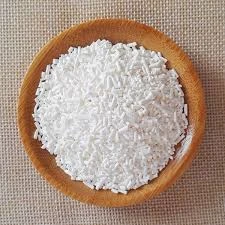
Exploring the Benefits and Applications of E410 Additive in Food Industries
Understanding E410 The Role of Food Additive in Our Diet
In the vast world of food production, additives play a crucial role in enhancing the quality, appearance, and shelf life of various products. One such additive that has garnered attention is E410, commonly known as locust bean gum or carob bean gum. Derived from the seeds of the Ceratonia siliqua tree, this natural thickening agent has become a staple in the food industry. This article aims to explore the properties, functions, and health implications of E410, shedding light on its significance in our daily diet.
Properties and Functions of E410
E410 is primarily used for its gelling, thickening, and stabilizing properties. It is particularly effective in forming gels when combined with other gelling agents, such as carrageenan or pectin. This additive is soluble in cold water, making it an excellent choice for a variety of food applications, including dairy products, sauces, and desserts.
In the food industry, E410 is commonly found in ice creams, where it improves the consistency and creaminess. Its unique ability to enhance mouthfeel ensures that ice creams maintain a smooth texture, even when subjected to temperature fluctuations during storage. Additionally, E410 helps prevent the formation of ice crystals, which can compromise the quality and taste of frozen desserts.
Beyond ice cream, E410 is utilized in baked goods, salad dressings, and sauces to stabilize emulsions and improve viscosity. By enhancing the texture of these products, E410 contributes to the overall sensory experience, making food more enjoyable for consumers.
Health and Safety Considerations
e410 additive

As with any food additive, the safety of E410 has been a subject of scrutiny. Regulatory authorities such as the European Food Safety Authority (EFSA) and the U.S. Food and Drug Administration (FDA) have evaluated E410 and deemed it safe for consumption within specified limits. As a naturally occurring substance, locust bean gum is generally recognized as safe (GRAS) and is suitable for various dietary preferences, including vegetarian and vegan diets.
However, some individuals may experience gastrointestinal discomfort when consuming large amounts of E410 due to its fiber content. Like other dietary fibers, excessive consumption can lead to bloating or gas. Moderation is key; individuals should be aware of their own tolerance levels and consume foods containing E410 mindfully.
E410's Environmental Impact
In recent years, there has been a growing focus on the environmental impact of food production. One of the notable advantages of E410 is its plant-based origin. The carob tree, from which E410 is derived, is a drought-resistant plant that thrives in arid conditions. Its cultivation can therefore contribute to sustainable agricultural practices by minimizing water usage compared to other crops.
Moreover, the use of E410 in food products can lead to reduced food waste. By enhancing the stability and shelf life of products, E410 helps ensure that food remains safe for consumption for longer periods, thereby combating the issue of food spoilage.
Conclusion
E410, or locust bean gum, is a versatile food additive that plays a significant role in enhancing the quality and texture of various food products. Its natural origin, combined with its gelling and thickening properties, makes it a valuable ingredient in the food processing industry. While it's important to be aware of individual tolerance levels to prevent any gastrointestinal discomfort, E410 is generally considered safe and beneficial. As consumers strive for transparency and sustainability in their food choices, understanding the role of additives like E410 is crucial for making informed decisions about our diets.
-
nitrile-rubber-honoring-strict-production-standardsNewsAug.22,2025
-
aspartame-ingredients-honoring-food-safety-valuesNewsAug.22,2025
-
fertilizer-for-balanced-plant-nutritionNewsAug.22,2025
-
cyanide-gold-processing-with-high-purity-additivesNewsAug.22,2025
-
formic-acid-in-textile-dyeing-applicationsNewsAug.22,2025
-
aluminum-hydroxide-gel-in-skincare-productsNewsAug.22,2025
-
Regulatory Compliance for Global Mining Chemicals UseNewsAug.12,2025
Hebei Tenger Chemical Technology Co., Ltd. focuses on the chemical industry and is committed to the export service of chemical raw materials.
-

view more DiethanolisopropanolamineIn the ever-growing field of chemical solutions, diethanolisopropanolamine (DEIPA) stands out as a versatile and important compound. Due to its unique chemical structure and properties, DEIPA is of interest to various industries including construction, personal care, and agriculture. -

view more TriisopropanolamineTriisopropanolamine (TIPA) alkanol amine substance, is a kind of alcohol amine compound with amino and alcohol hydroxyl, and because of its molecules contains both amino and hydroxyl. -

view more Tetramethyl Thiuram DisulfideTetramethyl thiuram disulfide, also known as TMTD, is a white to light-yellow powder with a distinct sulfur-like odor. It is soluble in organic solvents such as benzene, acetone, and ethyl acetate, making it highly versatile for use in different formulations. TMTD is known for its excellent vulcanization acceleration properties, which makes it a key ingredient in the production of rubber products. Additionally, it acts as an effective fungicide and bactericide, making it valuable in agricultural applications. Its high purity and stability ensure consistent performance, making it a preferred choice for manufacturers across various industries.





